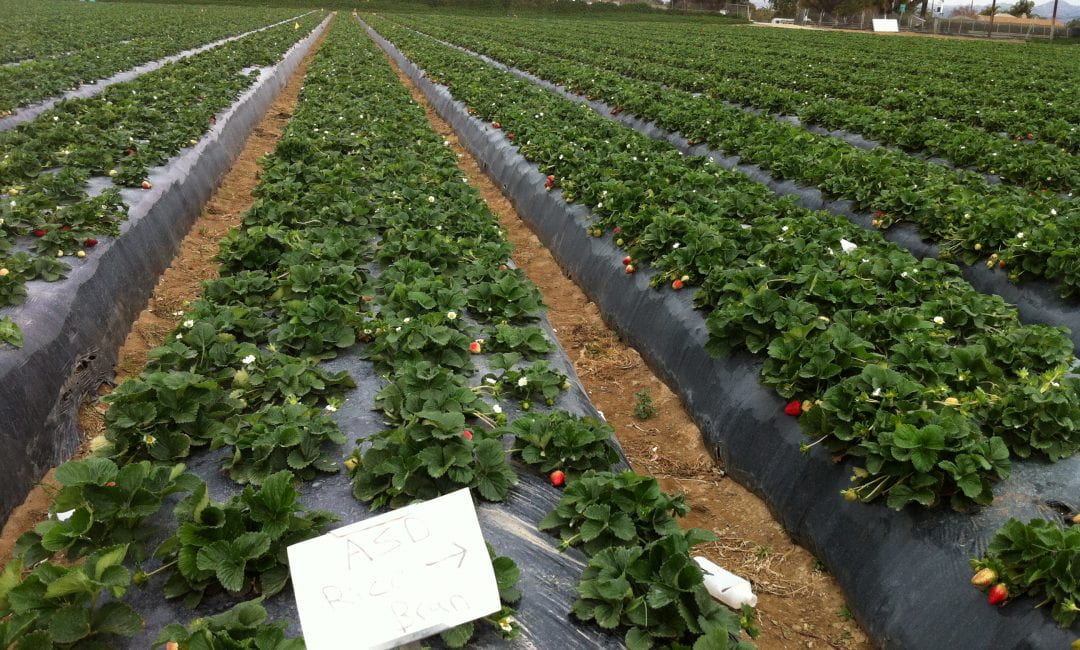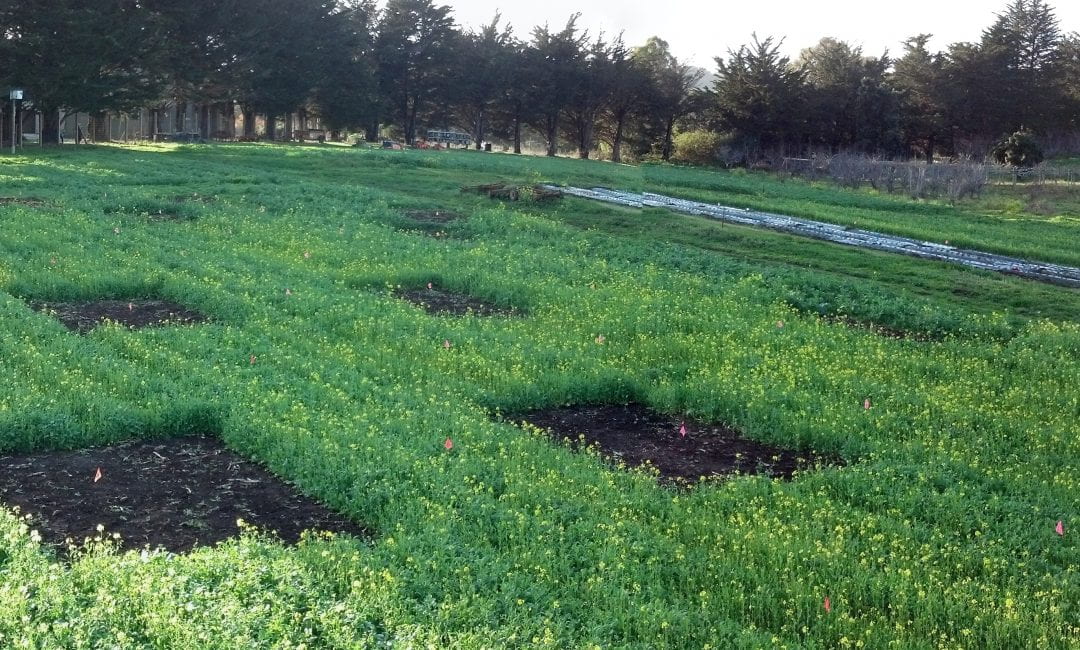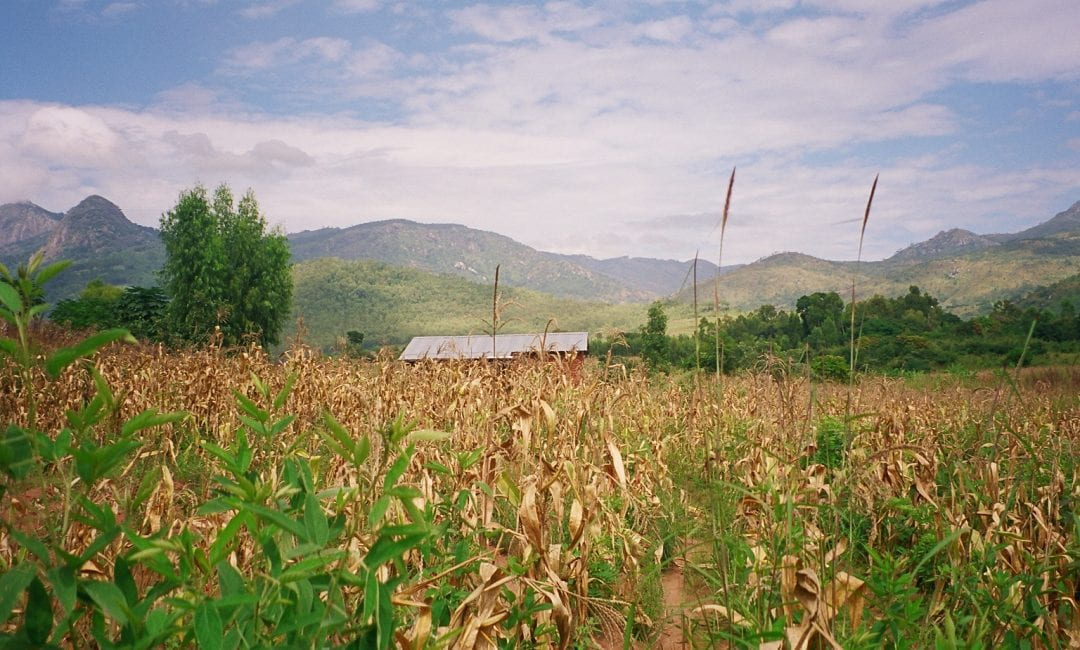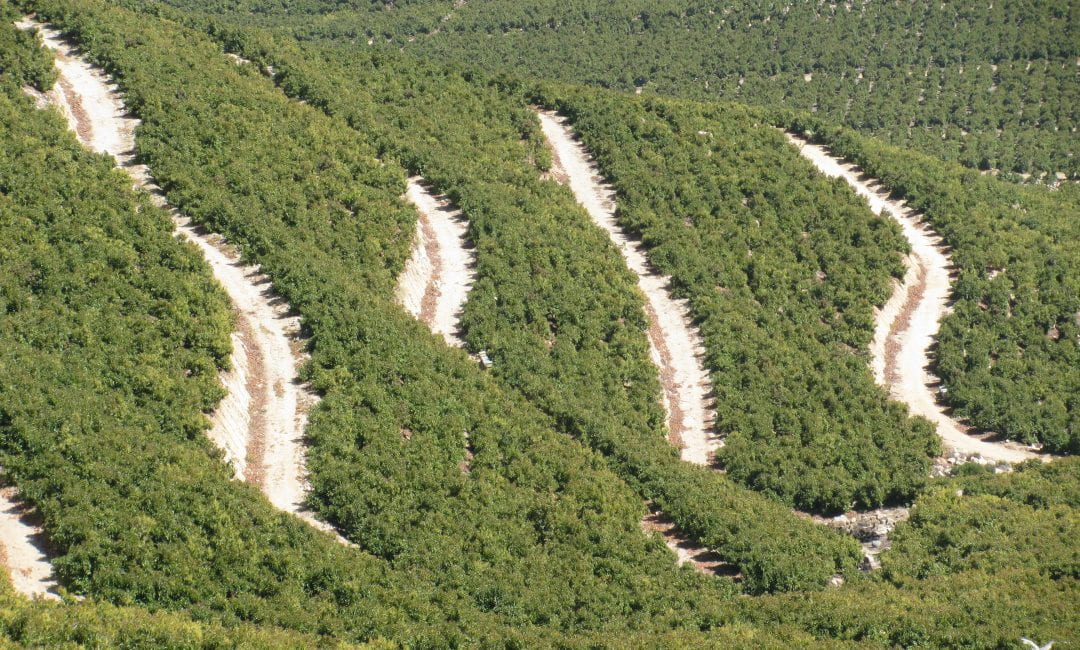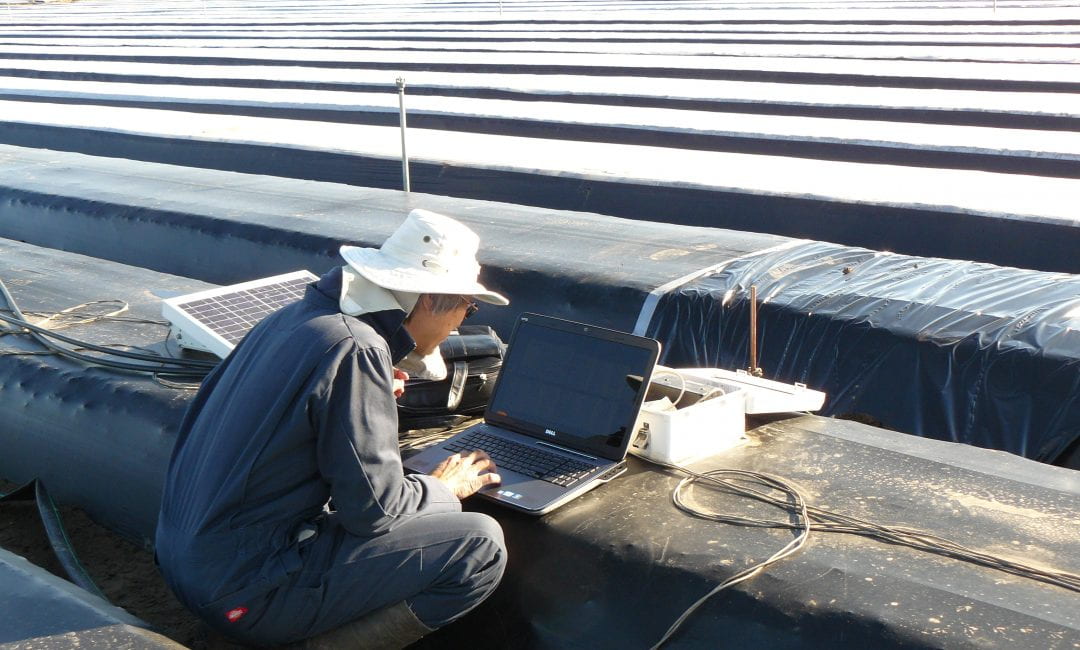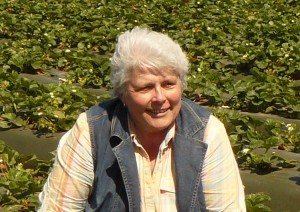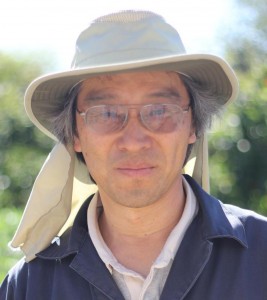Carol Shennan PhD, Professor
I was born and raised in rural England, and studied Botany (PhD) and Natural Sciences (BA) at the University of Cambridge. My interest in agriculture and environmental issues grew from my rural background and working on the first environmental impact study in the UK while in high school. As a student I also worked on salt marsh ecology and botanical surveys of the Scottish coast. For my PhD I studied the physiology of salt marsh plants and how they tolerated high salinity. I continued this work on salinity tolerance doing a Postdoc at the University of Sydney and when I became an Assistant Professor in the Department of Vegetable Crops at UC Davis. At this point I was focusing on salinity issues in agriculture which led me to become interested in questions of agricultural sustainability more broadly. My work now focuses on questions of agricultural sustainability both in the US and elsewhere in the world, covering a spectrum of systems and sustainability issues. In the Central California coast region my lab focuses on issues of nutrient and disease management in high intensity organic strawberry/vegetable annual cropping systems, and on development of alternatives to the use of agrochemicals, notably soil fumigants, for disease and pest control in strawberry and other crops. In contrast we also work on issues of livelihoods and sustainability in resource limited systems in Africa and elsewhere. For more information on my research go to the research page of this website and to publications for a list of my published work
RECENT GRANTS
- 2020-2023. USDA-NIFA Methyl Bromide Transition Program: Developing Suppressive Crop Rotations as a Non-Fumigant Soilborne Disease Management Strategy for Strawberries $411,395 (Co-PI)
- 2019-2021 USAID Tekki Jigeen. Evaluating ICT-enabled Business Development Services for Women in Senegal. Women Connect – subcontract from Concern Universal $134,000
- 2017-2020 USDA-SCRI. Integrating anaerobic soil disinfestation, crop rotation and variety for disease
management in strawberry production. $2.6 million (PI) - 2016-19 USDA NIFA. Refining anaerobic soil disinfestation for disease management in strawberry and apple production $497,965 (PI)
- 2016-19 CDFA. Immobilizing mineralized nitrogen from cole crop residues using organic amendments. $252,258 (Co-PI)
- 2013-18 USAID. New Alliance ICT Extension Challenge Fund (Country Focus: Senegal) ($1.7M Co-PI)
- 2014-2017 USDA ARS. Optimization and implementation of biologically active amendments as a fumigation alternative for soil borne disease control in California strawberries.$318,301
- 2014-16 CA Dept. Pest. Reg. Improving the efficacy of biologically mediated soilborne disease management in strawberry by the use of reduced rate fumigation $298,472 (Co-PI)
- 2014-15 CA Strawberry Com. Non-fumigant strategies for soilborne disease control in California strawberry production $70,000
- 2013-15 CA Dept. Pest. Reg Integrated Pesticide Reduction Strategies for Insect and Disease Management in Cole Crops $399,304
- 2013-14CA Strawberry Com. Non-fumigant strategies for soilborne disease control in California strawberry production $133,000
- 2013-16.USDA NIFA An Institutional Partnership Model for Sustainable Agriculture Curriculum Development and Recruitment of Underrepresented Students in California $730,893 (Co-PI)
- 2012-15 USDA MeBr Trans. Implementing Anaerobic Soil Disinfestation for soilborne disease control in Strawberries and Apple Nurseries. $455,000
- 2012-13CA Strawberry Com. Non-fumigant strategies for soilborne disease control in California strawberry production systems $175,000
- 2011-15 USDA OREI A Collaborative Research and Extension Network for Sustainable Organic Production Systems in Coastal California. $2.608 million
- 2011-14USDA WSARE Integrated Rotation Systems for Soil Borne Disease, Weed and Fertility Management in Strawberry/Vegetable Production. $218,425
- 2011-12 USDA ARS Methods to Facilitate the Adoption of Alternatives to Methyl Bromide Soil Fumigation by California Strawberry Growers. $299,982 (one of 9 co-PIs, UCSC portion $73,115)
- 2010-13 Org Farm Res Fdn Integrated Soil-Borne Disease and Weed Management for Organic Strawberries $49,132
- 2010-13 USDA MeBr Trans Advanced Development and Implementation of Anaerobic Soil Disinfestation Technology as an Alternative to Methyl Bromide. $643,177 (one of 5 Co-PIs, UCSC portion $210k)
Dr. Joji Muramoto
Department of Environmental Studies
1156 High St
Mail stop: ENVS
Santa Cruz, CA 95064
Email: joji@ucsc.edu
Phone: 831-247-3804
My current research focuses on developing sustainable fertility and soil-borne disease management strategies in organic (and conventional) strawberries and vegetables in California. Research projects include optimizing anaerobic soil disinfestation (ASD) as an alternative to fumigations in strawberries and Brussels’ sprouts, developing N fertility management strategies for organic strawberries and organic vegetables, and strengthening the organic research network in the central coastal California. I am also interested in building an agroecological research network in the east Asian region.
.For a list of my publications please see lab publications or click on this link for a complete list including reports Muramoto pubs
Diego Nieto
Research Associate
Department of Environmental Studies
1156 High St
Mail stop: ENVS
Santa Cruz, CA 95064
Margherita Zavatta
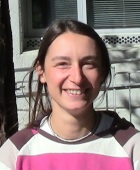
Specialist
Department of Environmental Studies
1156 High St
Mail stop: ENVS
Santa Cruz, CA 95064
Recent graduate students
Graeme Baird
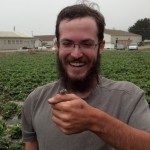
Doctoral Student
Soil microbial ecology; integrated pathogen management; risk assessment in agricultural technologies
Jon Eldon

My research interests fall into 2 closely related categories: 1- nutrient cycling in agricultural ecosystems, with the goal of improving nutrient use efficiency, 2- the interaction of environmental and socio-economic factors underlying (or undermining) food security in the rural tropics
Robin Lovell
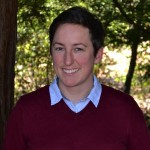
I study climate change adaptation in agroecosystems in Southeast Asia. Working with Dr. Carol Shennan, I have designed an interdisciplinary project exploring the linkages between land use change, hydrologic fluctuations due to climate change, and agroecological adaptations in smallholder farms within the Mekong Delta of Cambodia and Vietnam. I am exploring farmer water management choices, gendered adaptations to extreme precipitation events, and resulting crop yield fluctuations due to human and environmental influences.
Christian Magdahl

My research interests are related to conventional intensive agriculture and how to integrate sustainable practices into this system. I am mainly interested in avocado production in Chile, an industry that has grown very strongly in the last 20 years with important changes in management techniques and has developed in to new growing areas. At an industry level I am interested in understanding ways of assessing sustainability and identifying factors and drivers that can or will help move to more sustainable practices. From the production point of view I am interested in C and nutrient cycles and how new orchard design and management techniques influence tree productivity, soil conditions and water use in relation to the environmental impact of the system.
Rachel Voss

My research interests relate to the dissemination and diffusion of agroecological knowledge and methods in the U.S. and East Africa — in particular, the social, economic, and political forces driving farmers’ decisions to adopt or reject resource-conserving practices. I’m also concerned with alternative agricultural knowledge-sharing mechanisms such as farmer-to-farmer networks and mobile technology. At the policy level, I’m interested in the role of U.S. foreign aid policies and programs in supporting or impeding the scale-up and scale-out of agroecology worldwide.
Mahsa Fatemi
Past Visiting Scholar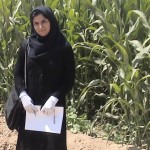
My research interests include environmental sociology, sustainable agriculture, causes and consequences of drought, land use change, and attitude and behavioral modeling. The title of my Ph.D. dissertation is “Ecological Footprint and its Application for Sustainable Agricultural Extension Management in Fars Province”. I plan to quantify and analyze the Ecological Footprint (EF) in Fars province (Iran) and develop a conceptual framework to perform a comparative analysis of agricultural sustainability in Iran and other countries.
